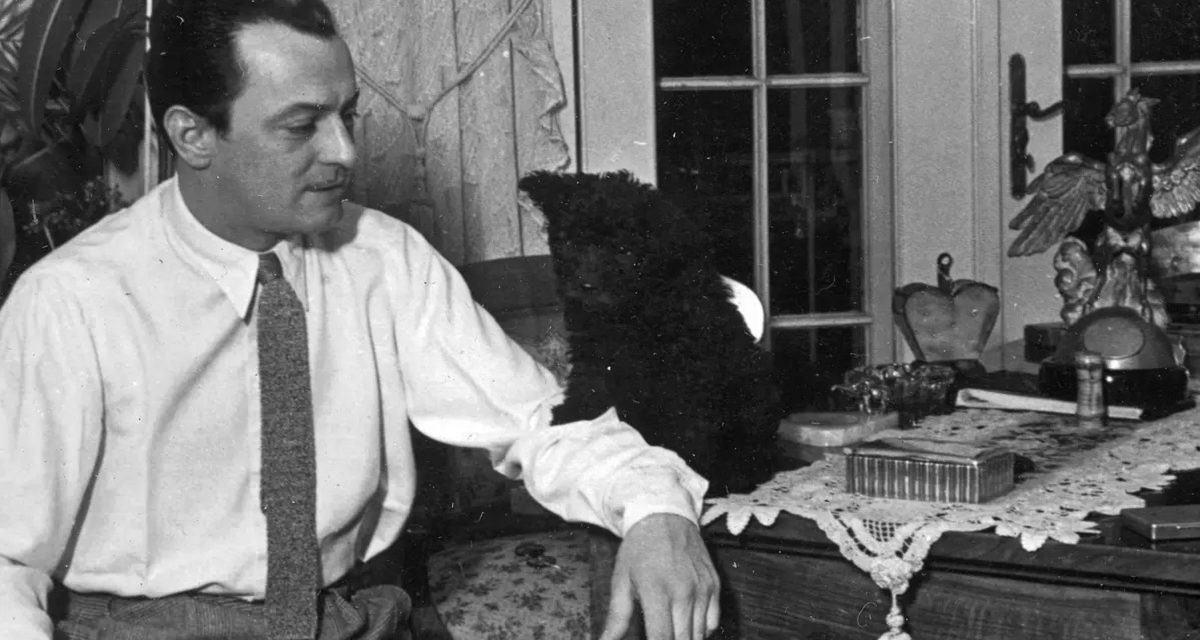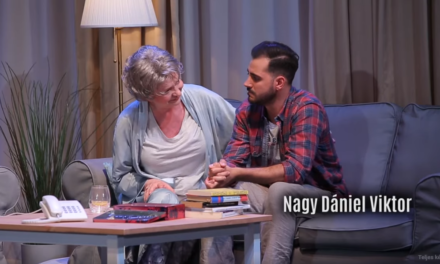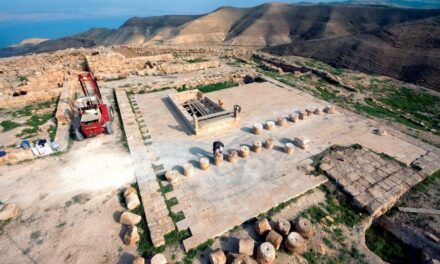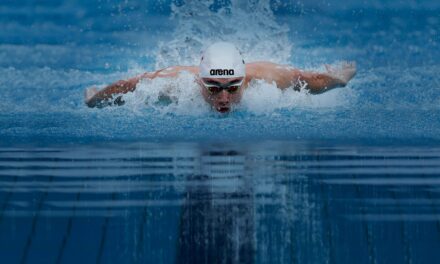Pál Jávor, one of the best-known and most loved Hungarian actors of all time, the first Hungarian male film star, was born on January 31, 1902 in Arad, under the name Jermann Pál Gusztáv.
His popularity was initially due to his good looks and the portrayal of characters with strong characters played in dozens of films. Later, they recognized his dramatic talent and deep character portrayal.
The young man who started from extreme poverty lived in Szombathely during his high school years, then became a student of the National Academy of Drama in Budapest. At that time, he changed his name from Jermann to Jávor. He lived his academic years very poor, starving. At the theater academy, he was first mentored by actor-teacher Imre Pethes (1864–1924), later by Gyula Csortos (1883–1945), the acting legend. In 1922, he graduated from the Actors' Training School of the National Actors' Association.
After that, the talented and handsome young actor received a contract in Budapest at the Várszínház and the Renaissance (now Thália) Theater, where he worked from 1922 to 1924. Konok, due to his sudden nature, had constant conflicts with the theater management and his fellow actors, so he was soon forced to move to the countryside. Between 1924-1928 he performed in Székesfehérvár, Kaposvár, Esztergom, Veszprém, Kispest and Szeged. In 1928, he signed a contract with the Magyar Színház, and in 1929 with the Belvárosi and the Capital Operettszínház. He was a member of the Vígszínház from 1930 to 1935, and the National Theater from 1935 to 1944.
If the production of sound films in Hungary had not taken off with great momentum and he had not become its busiest actor, based on his theater work he would have become a successful actor even then.
He had famous performances at Vígszínház, including the main roles in Sándor Hunyady's Black-Black Cherry and Sándor Bródy's The Teacher.
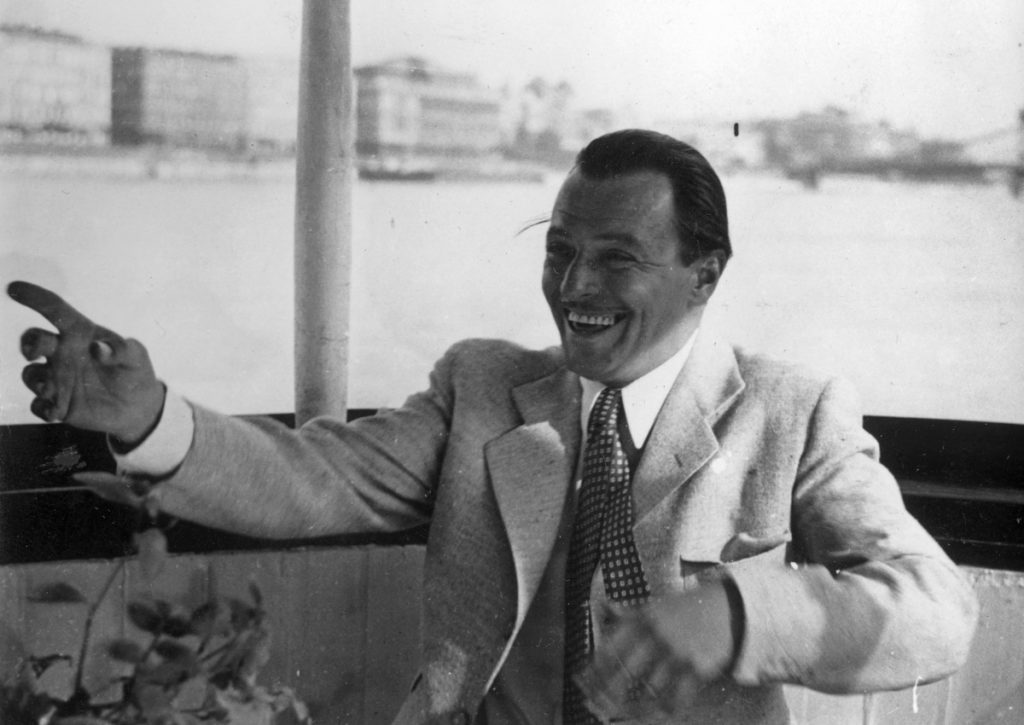
Pál Jávor on a cruise on the Danube, the Chain Bridge in the background Photo: fortepan 10482
already appeared A kék bálvány , and then in the second, Hyppolit, a lakáj
His good looks and masculine radiance enabled him to become a star of the 1930s and 1940s.
Between 1931 and 1944, he was an almost indispensable actor in Hungarian films, playing in nearly eighty films. With his impressive work ethic, he got a role in every fifth Hungarian film.
His memory is preserved today by his films, which are sold in increasing numbers on DVD discs, so that everyone can see what the "elder mustache" was like, the hero lover for whom the women's hearts of a country beat in the 30s and 40s. Among his former film partners, Hyppolit Terkája, Éva Fenyvessy , Józsája from Halálos tavasz, Éva Szörényi , Évája from Lángok, Valéria Hidvéghy saw in him not only the irresistible man.
Among his stage and film colleagues, Vay Ilus , Márta Bakó , and György Bárdy highlighted the positive and humane side of Pál Jávor towards them in their reminiscences. In their reminiscences, his colleagues also report on his deep faith in God, according to which he went to the church to pray before every stage performance.
Vay Ilus recalled his memories of the actor in his book "While I was clowning" published in 2006. The lyricist Iván Szenes wrote the song "Egy tzistes öszes hálánték" for Pál Jávor in the second half of the fifties (when he returned home from abroad), which can be heard several times in archive programs.
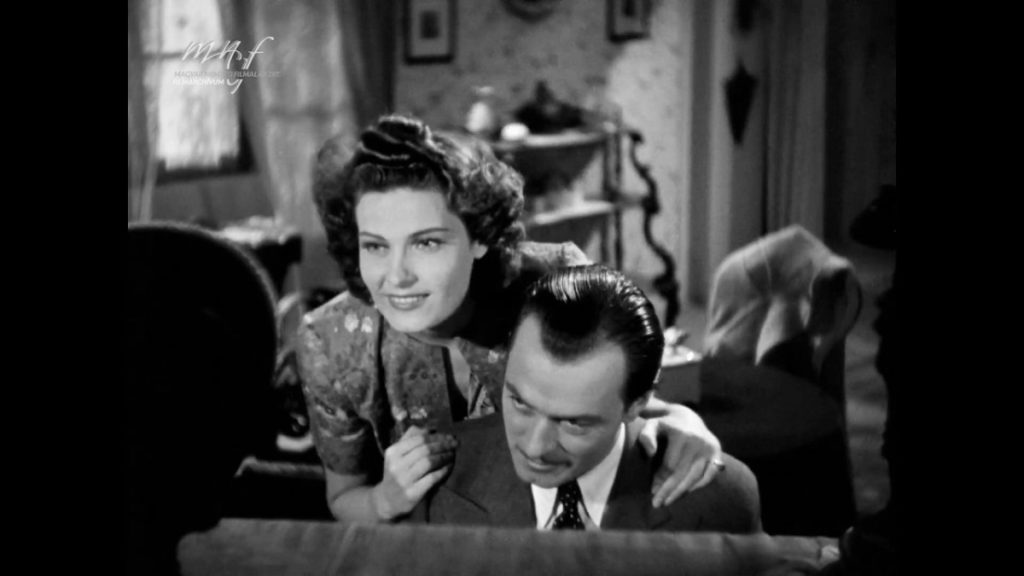
Pál Jávor and Katalin Karády. Source: Wikipedia
He was the male ideal of the thirties, and women admired him. However, instead of celebrated actresses, she shared her life with a civilian, a young woman raising her children alone, Olga Landesmann. They got married in 1934, and it turned out to be a good decision, as they never let go of each other's hands.
His career was split in two by World War II. world War. From 1944, he was subjected to numerous deportations. The artist who bravely stood up for his peers was put on the Gestapo list. First, he was banned from the theater and then from the film industry, and his chamber membership was also suspended. He spent the summer of 1944 first in Balatonfüred and then in Agárd by Lake Velence in the house of his friend András Dékány, a writer. Finally, on the day of the Arrow takeover, Pál Jávor was arrested along with many others. First he was held in his own house, then he was sent to Svábhegy to the Gestapo, and later to the prison in Sopronkőhida.
In his diary, he wrote down the horrible everyday life in Sopronkőhida, the hunger, the cold, the typhus epidemic, and the daily mental and physical struggle for survival.
His Jewish wife hid separately, but he managed to escape. However, he was dragged by the Arrowmen to Germany, from where he returned home on July 19, 1945.
After April 1946, he took the stage sixty-seven more times, and then Tamás Major, the director of the National Theater, did not allow the artist, who was considered a reluctance, to stand on the stage in obedience to a higher order. Due to his absence, he went to Transylvania to play a guest role between May and September 1946, and then accepted a six-month overseas contract, which turned into eleven years spent in emigration.
After his success in Budapest, he had a hard time being neglected abroad, to which his poor English skills contributed greatly. He worked as a night porter in New York to make ends meet.
The failures took such a toll on him that he had to go into alcohol withdrawal. His wife stood by him throughout. He also met Ferenc Molnár and then Sándor Márai in New York, who could never process being separated from his country.
In the fall of 1957, Pál Jávor and his wife returned home. He was greeted by his friends and fans at the Nyugati railway station. He happily continued his craft, first at the Petőfi and Jókai Theatres, then in 1959 he was contracted by the National Theatre, but he was already terminally ill at the time.
They celebrated their silver wedding with Olga in the summer of 1959, in the hospital, where gypsy musicians played their favorite notes in the hospital's garden.
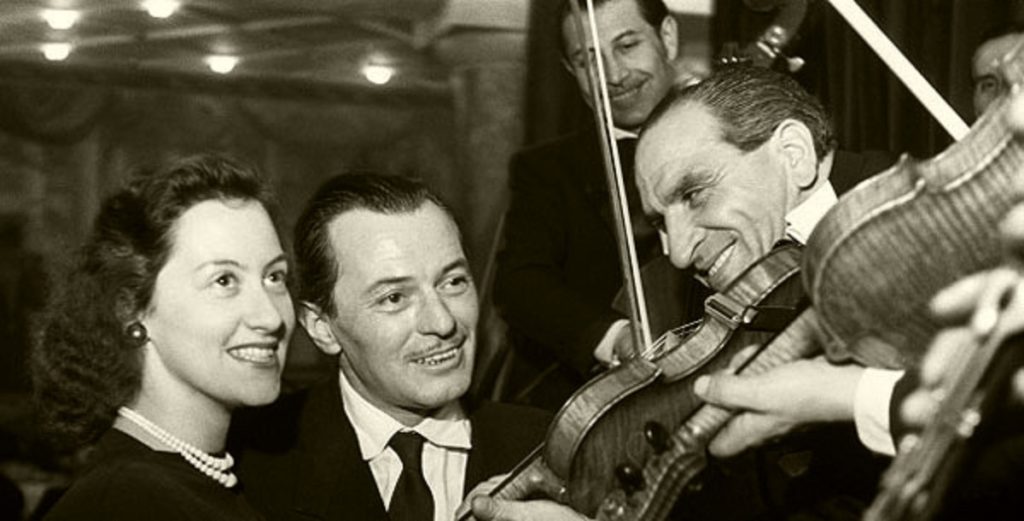
Pál Jávor with his wife Olga Landesmann Photo: Hungarian National Archives
On July 23, 1959, the IV. The Institute of Theater Studies interviewed him at the Surgery Clinic, when he talked about his plans and desired roles. He died three weeks later, on August 14, at the age of 57. Tens of thousands of people accompanied him on his last journey in the Farkasrét cemetery, where gypsy primates also appeared among the mourners and played his music.
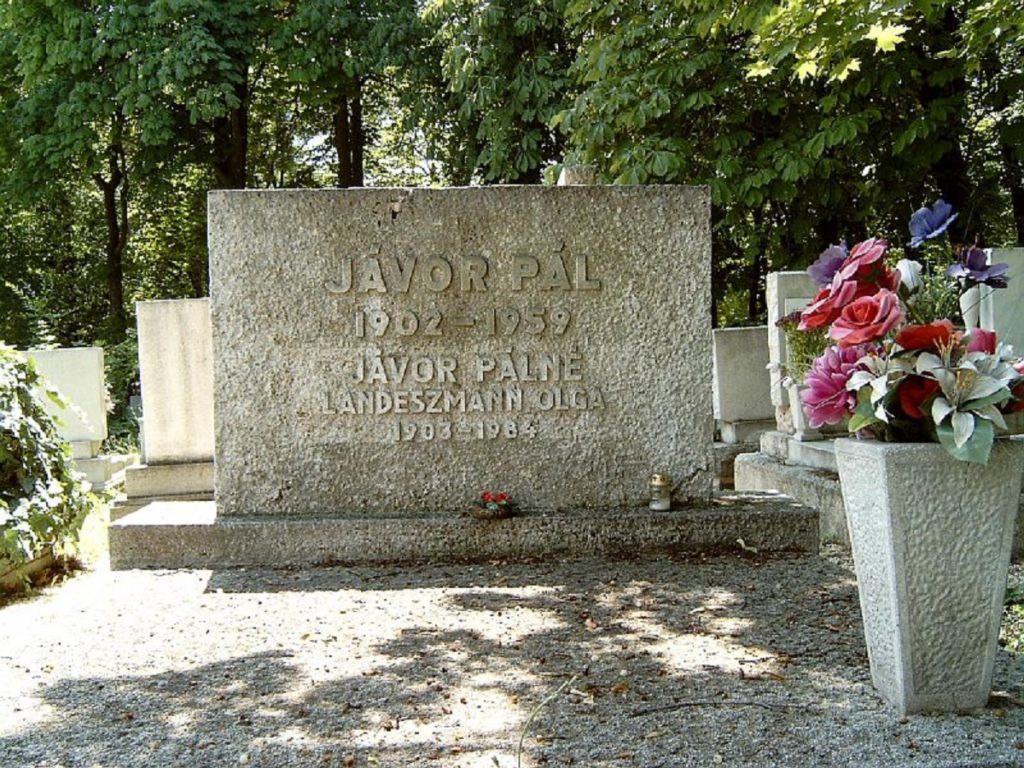
Pál Jávor's grave in the Farkasrét cemetery Photo: Wikipedia
In Budapest, on September 1, 1959, in the church of Krisztinaváros, at the holy mass presented for the spiritual recovery of the actor Pál Jávor, the spiritual father remembered as follows:
- On behalf of the person who moved away, at his request, I am announcing a will: "After my death, I am asking you to announce from the pulpit to my fellow artists, my former dear audience and all my Hungarian brothers and sisters that it is worth living by following Christ alone, that the only true value here is the color of God over there in eternity it is also before, because there is eternity, there is eternal life, there is a soul."
Source: National Film Institute, Ketkes Magazine, Hungarian Homepage, Hungarian National Archives
Video: youtube.com
(Kornélia Berényi/Felvidék.ma)

